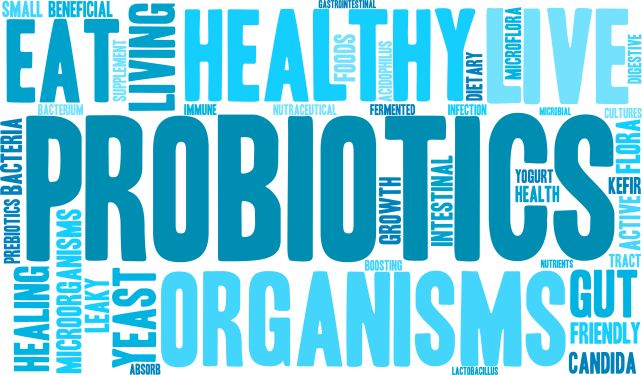Probiotics are strains of living bacteria or “good bacteria” essential to gut and overall health and that add to the population of good bacteria in your digestive system.
Prebiotics are specialized plant fibers that act as food for the good bacteria and actually stimulate growth among the preexisting good bacteria. It is believed that the prebiotic compounds in foods could actually alter the composition of organisms in the gut microbiome and enhance digestive health.
So in essence, probiotic foods and supplements add to the strength in numbers of soldiers to your army of good bacteria and prebiotics give the soldiers the support they need.
With so many people today suffering from a compromised gut, having the correct types of gut bacteria, and the correct ratio of the bacteria, has taken on greater importance.
The Gut Microbiome
According to Healthline:
“The incredible complexity of the gut and its importance to our overall health is a topic of increasing research in the medical community. Numerous studies in the past two decades have demonstrated links between gut health and the immune system, mood, mental health, autoimmune diseases, endocrine disorders, skin conditions, and cancer.
“At one time, our digestive system was considered a relatively “simple” body system, comprised essentially of one long tube for our food to pass through, be absorbed, and then excreted.
“The term “gut microbiome” refers specifically to the microorganisms living in your intestines. A person has about 300 to 500 different species of bacteria in their digestive tract. While some microorganisms are harmful to our health, many are incredibly beneficial and even necessary to a healthy body.
“According to Dr. E. M. Quigley in his study on gut bacteria in the Journal of Gastroenterology and Hepatology, having a wide variety of these good bacteria in your gut can enhance your immune system function, improve symptoms of depression, help combat obesity, and provide numerous other benefits.
7 Signs of an Unhealthy Gut
“There are a number of ways an unhealthy gut might manifest itself. Here are seven of the most common signs:
1. Upset stomach
2. A high-sugar diet
3. Unintentional weight changes
4. Sleep disturbances or constant fatigue
5. Skin irritation
6. Autoimmune conditions
7. Food intolerances.”
For the full Healthline article, click here.
Supplementation with the needed forms of beneficial bacteria, and the correct ratio of those beneficial bacteria, will go a long way in helping improve gut health, as will consuming prebiotics to enhance the probiotics in the gut. Good gut health can then support a stronger immune system, better mood and mental health, and healthier skin.

